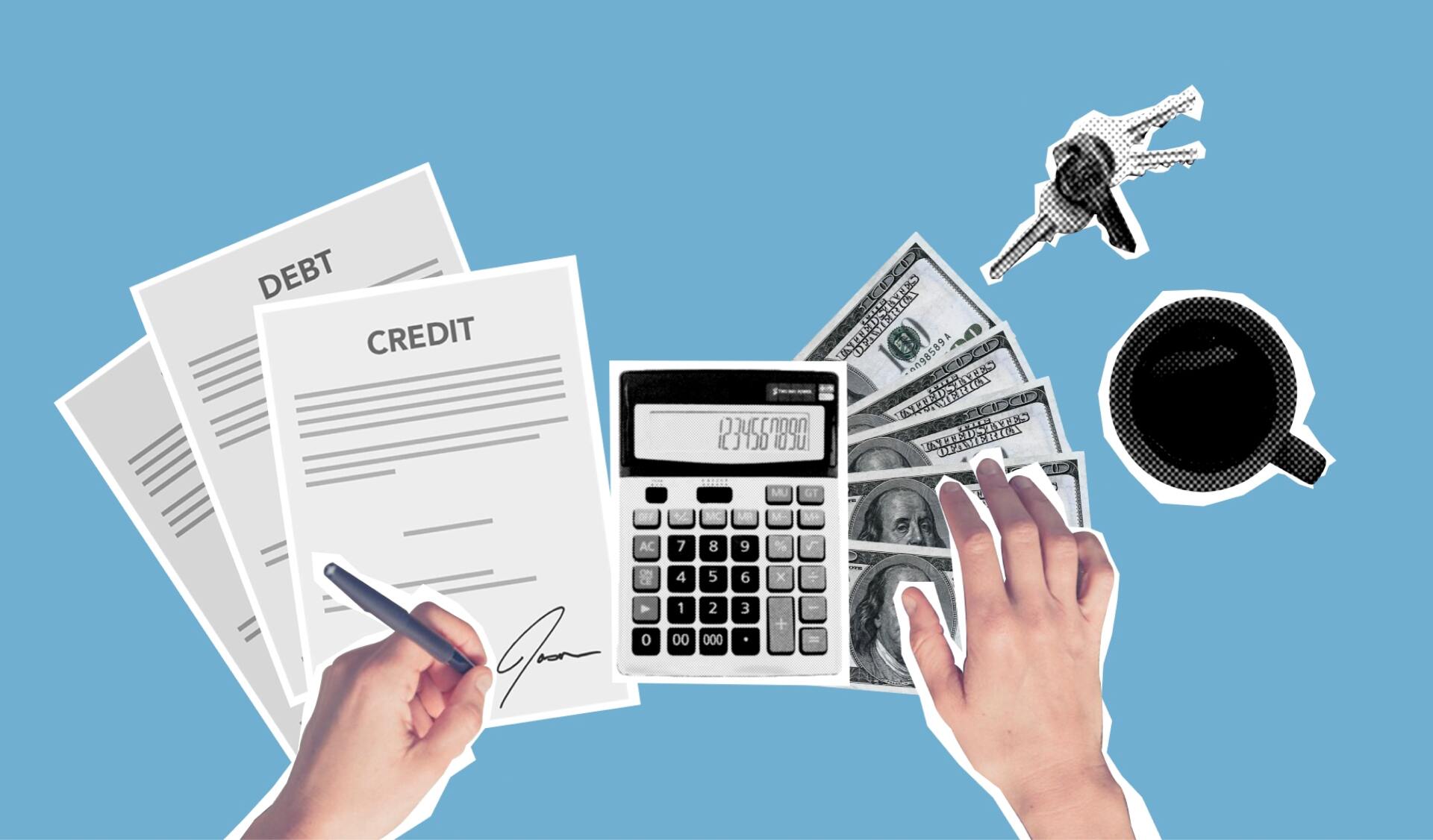5 Steps to Rebuilding Your Credit
How to rebuild your credit after your bankruptcy case is over

1. Always Pay All of Your Bills on Time
This tip might seem obvious, but payment history is the single biggest factor in determining your credit scores and helping rebuild credit. Payment history makes up about 35% of your FICO Score calculation, so it’s very important that you make only on-time payments when working on rebuilding your credit after bankruptcy.
Making payments on time not only adds new, positive info to your credit reports, it helps build up scores and shows future creditors that you’re a reliable borrower. Even if you only make the minimum payments, making sure they’re paid on time ensures consistent, positive reporting to credit agencies.
2. Keep Your Balances Low
This is the second biggest part of your FICO Score calculation, making up 30% of it. Careful use of credit after bankruptcy is one of the good financial habits you want to develop that is key to rebuilding credit. However, another key to your credit scores is the debt to credit ratio. This ratio is the amount of debt you have verus the amount of credit available.
Keeping the amount of debt you carry relatively low is a huge factor for lenders when they are looking at your reliability. It shows not only that your bills can be paid in a timely manner, but also that the money and credit you have available can be managed well.

3. Check Your Credit Reports Regularly
Checking your credit reports regularly is just a good credit habit to have in general. However, after a bankruptcy it’s even more important to check them regularly. You want to start checking your reports 3 to 6 months after your discharge to confirm that those accounts that were discharged are being reported as such.
Familiarizing yourself with your credit reports makes it not only easier to spot any reporting errors, but also to provide insight as to where you can make targeted improvements.
Consumers are able to access a free copy of each of their credit reports once a year through www.AnnualCreditReport.com. We recommend that you check one of them every four months. That way you will be able to check at least one of your credit reports for free three times a year.
4. Get a Secured Credit Card
Obtaining credit immediately after a bankruptcy can be difficult. You are probably out of the running for a traditional credit card for a while. However, a secured credit is usually available to most people not too long after filing bankruptcy.
A secured card requires a deposit, typically in the $300.00 range, and the fees are usually taken out of the deposit. So if the card had an annual fee of $29.00 and a deposit requirement of $300.00, your initial credit limit would be $271.00.
A secured card is usually easier to get because it protects the lender in the event you can’t make your payment. The downside for the consumer is that they can also come with high fees and interest rates.
But with regular use and a consistent payment history, your credit will start to see the benefits and eventually you will be able to qualify for a better, unsecured card. Some secured cards offer a conversion to unsecured after a set period, so it can be worth shopping around and checking out options.
Even without the conversion option though, a secured credit card is one of the very best ways of repairing and rebuilding your credit history.

5. Rebuild and Repair your Finances and Avoid Bad Credit Habits After Bankruptcy
This is the part that can be the most daunting for some depending on what past habits and circumstances were at play before they had to file for bankruptcy. But, making the very difficult and sometimes intimidating choice to file for bankruptcy can be the first step to a true fresh start financially. With this blank slate in hand, this is the perfect time to really develop and put into practice those good financial habits that will help rebuild your credit and keep it there.
Lenders want to see you able to pay your bills and have some money left over, since this is a good indication that your credit isn’t at risk of being maxed out. The key is setting a budget and sticking to it. Write out a monthly budget and then see how you do trying to stay within those limits. Then, you can make sure any payments for credit you obtain and use can fit comfortably within your budget.
With your budget set, make sure those payments are made on time. Setting up auto-pay and having reminders set elsewhere for those bills that can’t be set up on auto-pay can help guarantee timely payments. Many places will also let you pick the due date for the auto-pay as well to allow for variations in pay periods if the one they set for you isn’t convenient for your particular circumstances.
And finally, begin to build an emergency fund. Having savings for things that may come up last minute helps not only minimizes the risk of maxing out credit lines in the event of an emergency, but it also helps contribute to financial peace of mind. It is easier to plan ahead knowing that emergencies can be handled. And it’s exactly that peace of mind we hope to help you achieve.
Bankruptcy can feel like defeat, but it doesn’t have to be. Sometimes it’s exactly the right first step for a better future financially.
If you'd like more information on rebuilding your credit, check out this post from the Consumer Finance Protection Bureau. All you need to do is copy and paste this link into your web browser:
https://www.consumerfinance.gov/ask-cfpb/how-do-i-get-and-keep-a-good-credit-score-en-318/









Share On: